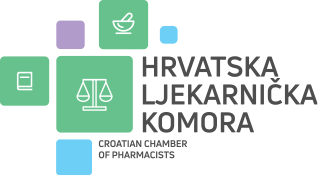Politics had always had a strong influence on development on the Croatian territory and pharmacy was no exception.
Politics had always had a strong influence on development on the Croatian territory and pharmacy was no exception. Particular rulers had enabled the flow of knowledge, arrivals of health professionals and intellectual exchange with other European countries; by their acts, they cleared the way to medieval pharmacy on Croatian soil. First community pharmacy in Croatia was established in 1271 in Croatian Trogir. Later on, the oldest European pharmacies were opened: in Dubrovnik (1317), in Zagreb (1355), and hospital pharmacy “Domus Christi” in Dubrovnik (1420).In 1377, Dubrovnik Republic’s Council brought into law “Resolution on Quarantine” that represented the very first anti-epidemiological measure ever introduced in the world. Croatian pharmacy experienced a considerable development in the 18th and 19th century marked by establishment of the first professional pharmaceutical organization (1858), pharmaceutical studies (1882) at Zagreb University, Pharmacy Act (1894), and Department of Pharmacognosy (1896) in Zagreb as the first institute of the kind in the world. Development of pharmaceutical industry also had a significant influence on developing pharmacy practice, starting with pharmaceutical factory “Thierry” in Pregrada (1893), followed by wholesale pharmacy “Isis” (1918), and pharmaceutical-chemical factory “Kemika” in Zagreb (1919) and “Kaštel” in Karlovac (1921). In the period between 1947 and 1991 pharmacies were exclusively state-owned.
Republic of Croatia is young Central European, Mediterranean, Pannonian-Adriatic country, that acquired its independency and sovereignty after Parliament decision in 1991. Croatia covers area of 56 542 km2 and has 4 440 000 inhabitants, mostly Rim Catholics (87 %) with high level of literacy (98.5 %), and with one medical doctor per 430 inhabitants. Since 1991 privatization of pharmacy sector has started and new pharmacies were opening. About 2 100 pharmacists perform public and 110 pharmacists hospital pharmaceutical activities in 960 community and 52 hospital pharmacies. About 63 % of community pharmacies are in private ownership, 23 % are state-owned and 14 % are under private lease. On average, there are two pharmacists per pharmacy. Pharmacists are obligated to continuously professionally develop so they could keep their licence for independent work obtained from Croatian Chamber of Pharmacists. There are two professional organizations in the country: Croatian Chamber of Pharmacists and Croatian Pharmaceutical Society. Pharmacy can be studied at the Faculty ofPharmacy and Biochemistry at Zagreb University. New clinical subjects had been introduced at the undergraduate level during reforms to pharmacy study according to Bologna process. Available postgraduate specializations in Croatia are following: (1) analysis and control of medicinal products, (2) pharmaceutical technology, (3) clinical pharmacy – hospital pharmacy and (4) clinical pharmacy - community pharmacy.
Pharmacists who work in community and hospital pharmacies are responsible for drug supply, dispensing medicines, production and quality control of magistral and officinal formulas, adverse drugs reporting and giving information about medicines for health professionals and general population. Hospital pharmacists are not part of hospital team and they do not work on wards. A system of dispensing unit drug dose therapy was established in Croatia on the ward for cardiac surgery in Zagreb’s Clinical Hospital Dubrava (1996), and this systematic clinical practice has shown a significant decrease in drug consumption. In community pharmacies beside basic services, pharmacists carry out some advanced services as disposal of waste medicines, night services, blood pressure measurement and weight measurement. “Croatian day of pharmacies” is celebrated each year on 29th of October.
Danijela Jonjić, Vladimir Grdinic
Croatian Chamber of Pharmacists, Zagreb, Croatia


